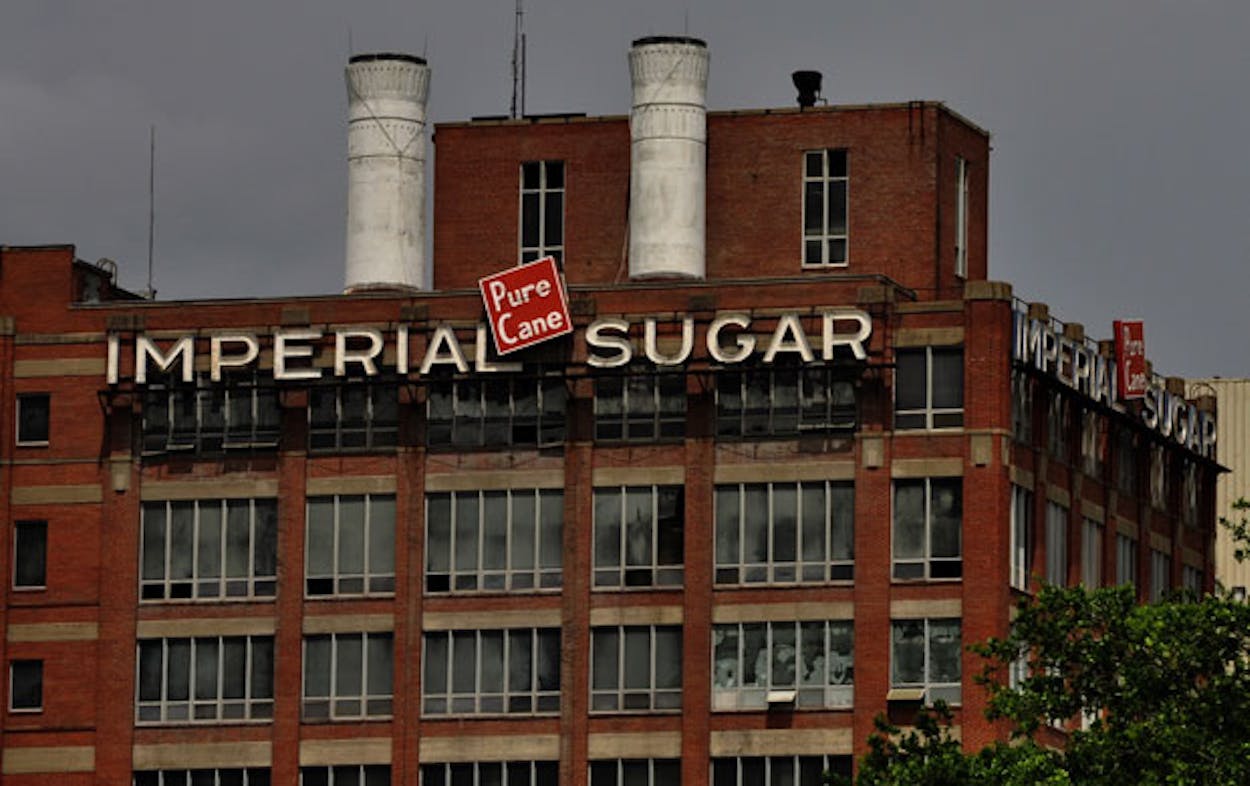A new mixed-used development on the site of the abandoned Imperial Sugar refinery has some Sugar Land residents reaching for their pitchforks.
The core of their unhappiness? They don’t want the new, 700-acre mixed used development to include so many apartments. A group of residents formed the Imperial Redevelopment Committee to protest the plan to include multi-family residences throughout the Imperial Master Planned Community.
The group of concerned Sugar Landers does not object to the 300 apartment units to be built by Constellation Field, the new home of the Sugar Land Skeeters, the minor league baseball team, KUHF’s Edel Howlin reported Monday. But phase two of the plan, which calls for 325 luxury apartments to be built in the historic district near the old sugar refinery, they find troublesome.
Once 75 percent of the apartments by the ball park are occupied, construction will begin on the units at near the sugar refinery.
In early April, the Houston Chronicle picked up on the controversy, running a story with the (cringeworthy) headline “For some in Sugar Land, apartments leave a sour taste.”
“The planned development of the city’s last piece of open land would turn the abandoned Imperial Sugar site – the very genesis of the city – into an $800 million urban space with museums, parks, luxury apartments, restaurants and a theater,” Lomi Kriel wrote in the Chronicle.
Some want to preserve the suburban character of Sugar Land. Scott Cole, one of the committee’s co-chairs, told Kriel that “[p]eople are very happy with the fact that we’re a suburban community, one that is not synonymous with an urban lifestyle.”
And, judging from their statements, the group seems to view renters as undesirables. “The success we’ve had in Sugar Land is because people own their own homes,” Bud Friedman, co-chair of the Imperial Redevelopment Committee, told Kriel. “They are trying to change Sugar Land into something that it has not been and something that we do not want it to become.” Mikie Groscurth opined to Kriel that renters add a “transient nature” to a city.
Would the development be a viable one without the foot traffic generated by apartments? No, according to David Crossley, the president of a Houston Tomorrow, a thinktank that advocates for smart growth in Houston.
“You have to have some density surrounding those businesses. Unless you’re assuming that everybody’s going to drive to them, and these developers are not assuming that. They’re assuming that these stores and all these commercial places can be largely supported by the people who live there that’s the point,” Crossley told Howlin.
The members of the Imperial Redevelopment Committee believe differently, however. “It is acknowledged that apartments are not necessary in the Historic District to support retail,” Friedman, Cole, and Leon Anheiser wrote in a January letter to Sugar Land’s Planning and Zoning Commission







